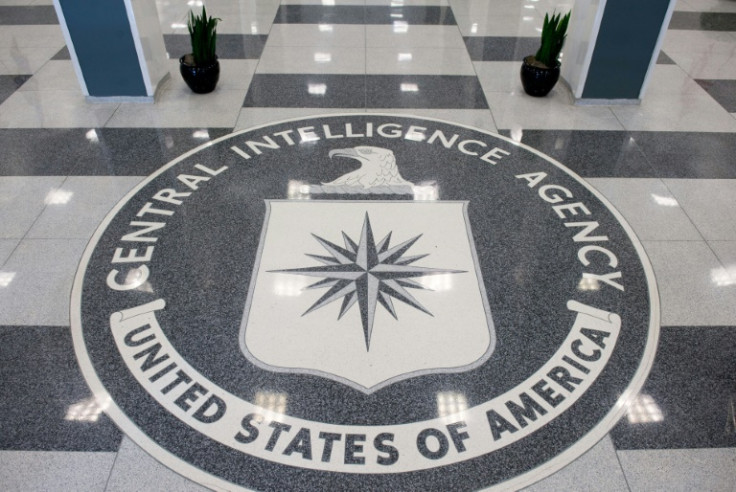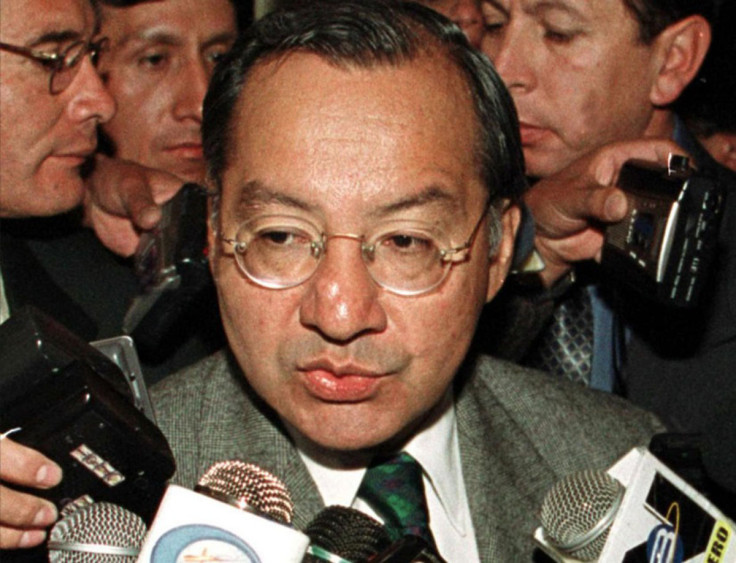
"Manuel Rocha is spying for Cuba."
That was the mysterious and startling tip former CIA operative Felix Rodriguez received from his Miami home in 2005. At the time, Rodriguez, who participated in the 1961 Bay of Pigs invasion in Cuba and the execution of revolutionary "Che" Guevara, believed that the tip was an attempt to discredit his colleague. Nonetheless, he passed on the message to the CIA, who was similarly skeptical.
Now, almost two decades later, former top U.S. diplomat Manuel Rocha has actually been accused of spying for Cuba. The nuance? He was known among his colleagues as an avid anti-communist and Trump supporter.
Rocha was popular in Miami's circle for his aristocratic, almost regal persona. An Ivy-League educated diplomat who held top posts in Argentina, Bolivia, Cuba and the White House, he demanded to be called "Ambassador Rocha."
Back in December, Rocha was indicted by a federal grand jury on charges that he allegedly spied for Cuba's intelligence agency for four decades. But a court document filed Wednesday shows that he intends to plead not guilty, asking that he not have to appear in court for his arraignment, which has already been postponed twice.
"I fully understand the nature of the offenses charged against me and the right to appear at arraignment," Rocha said.
Attorney General Merrick Garland described the case as "one of the highest-reaching and longest standing infiltrations of the U.S. government by a foreign agent."
Despite the accusations, there are still several pieces missing in the case, the biggest one being exactly what Rocha may have given up to Cuba. According to the indictment, Rocha held high-level security clearances, giving him access to top secret information. This part of the investigation however, could take years to complete.

Rodriguez's tipster— who hasn't been identified— wasn't the only one who knew about Rocha's actions. In fact, as early as 1987, the CIA was aware Castro had a "super mole" deep inside the U.S. government. While no name was revealed back then, some now suspect it could have been Rocha and that since at least 2010 he may have been on a short list given to the FBI of possible Cuban spies high up in foreign policy circles.
The criminal complaint adds that the FBI investigated Rocha for at least a year before his arrest, describing several meetings between him and an undercover FBI agent, who the retired diplomat believed to be a representative of Cuba's spy agency.
During three meetings, Rocha referred to the U.S. as "the enemy" and said "what we have done" was "enormous" and "more than a grand slam," the complaint indicated.
Born in Colombia, Rocha moved at age 10 with his widowed mother and two siblings to New York City. They lived for a while in Harlem while his mother worked in a sweatshop and got by with the help of food stamps.
He went to The Taft School, an elite boarding school in Connecticut, on a scholarship for minorities. There, he often mentioned suffering from discrimination— including a classmate who refused to room with him— given the fact that he was one of only a few minorities at the school.
"I was devastated and considered suicide," Rocha told the alumni magazine.
From Taft, he would go on to Yale, Harvard and Georgetown to embark on his higher education journey.
Once he finished his studies, Rocha would go into public service, where he built an extensive resume with the American government. From Honduras, to Bolivia to Havana, the now disgraced diplomat would go on to be known as a champion for the U.S. and its capitalist initiatives.
It is still unclear when the Cuban government may have recruited Rocha. But prosecutors say it must've been sometime in the 1970s when he was still in college campuses, which at the time had plenty of people sympathetic of leftist causes.
The case has put a spotlight on Cuba's spy agency, which is considered one of the most effective in the world.
"Cuban intelligence has been penetrating our government for decades and doing it phenomenally," Pete Lapp, a retired FBI agent said. "They have this innate inability to find people that have a visceral empathy for what they're trying to accomplish in the world or regionally."
A timeline for Rocha's case is still unclear. Nonetheless, his involvement with the Castro regime continues to send shockwaves to his former colleagues and law enforcement alike.
"This is a monumental screw-up," said Peter Romero, a former assistant secretary of state for Latin America who worked with Rocha. "All of us are doing a lot of soul searching and nobody can come up with anything. He did an amazing job covering his tracks."
Similarly, Tim Ashby, one of Rocha's former business partners said, "He was fiercely anti-communist and a staunch, early, Trump supporter. Rocha was the last person I would have suspected to be a Cuban spy."
© 2025 Latin Times. All rights reserved. Do not reproduce without permission.





